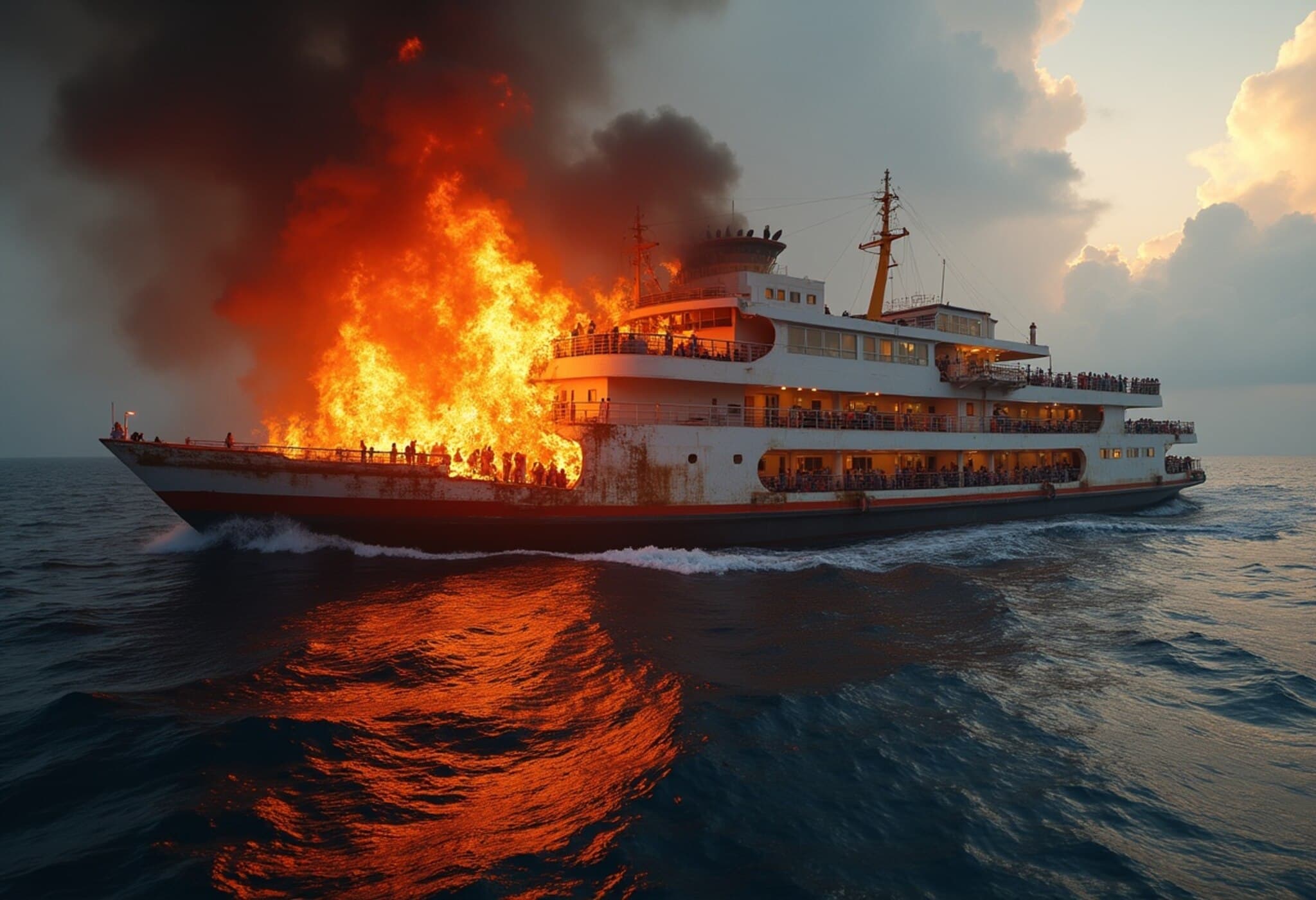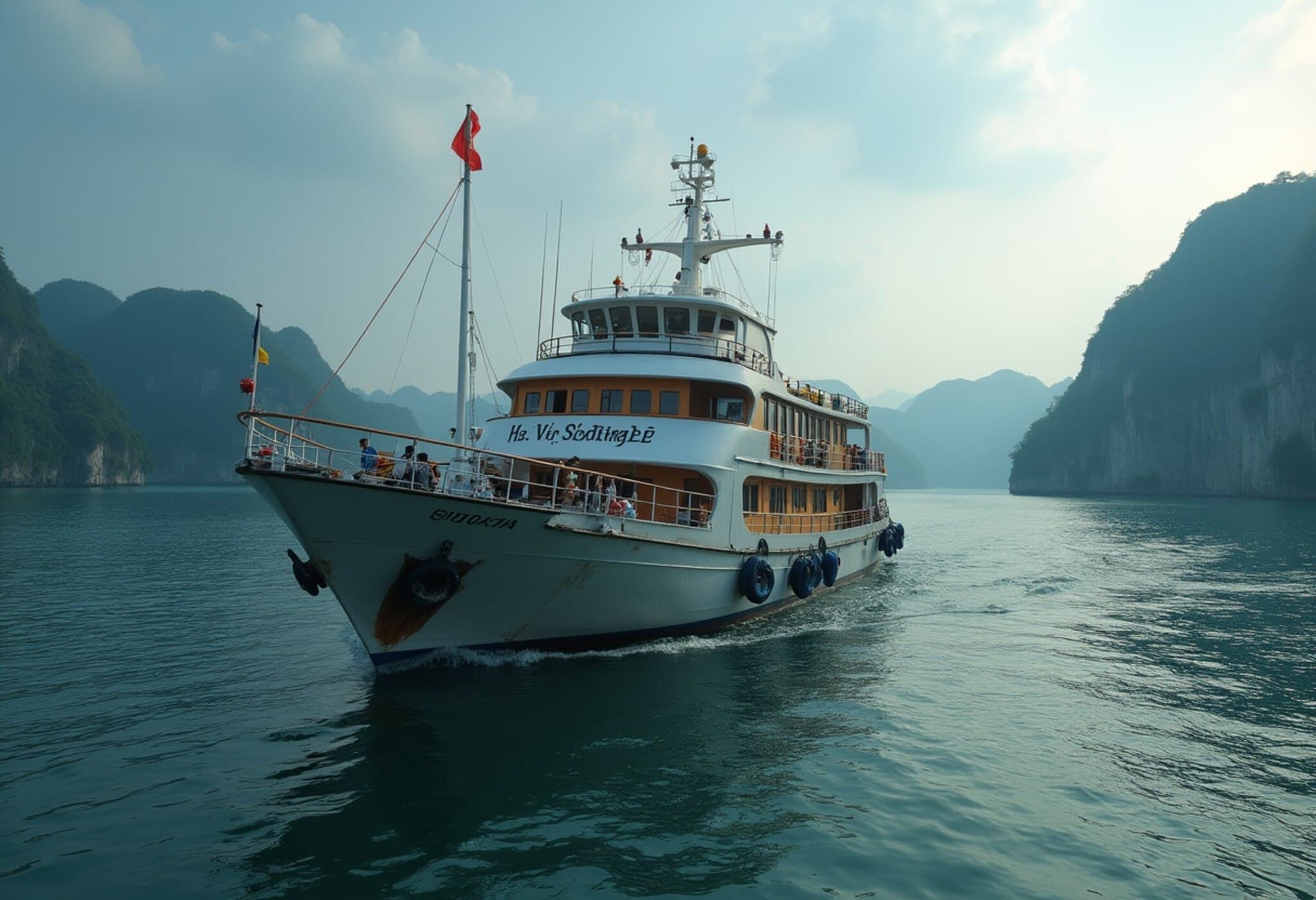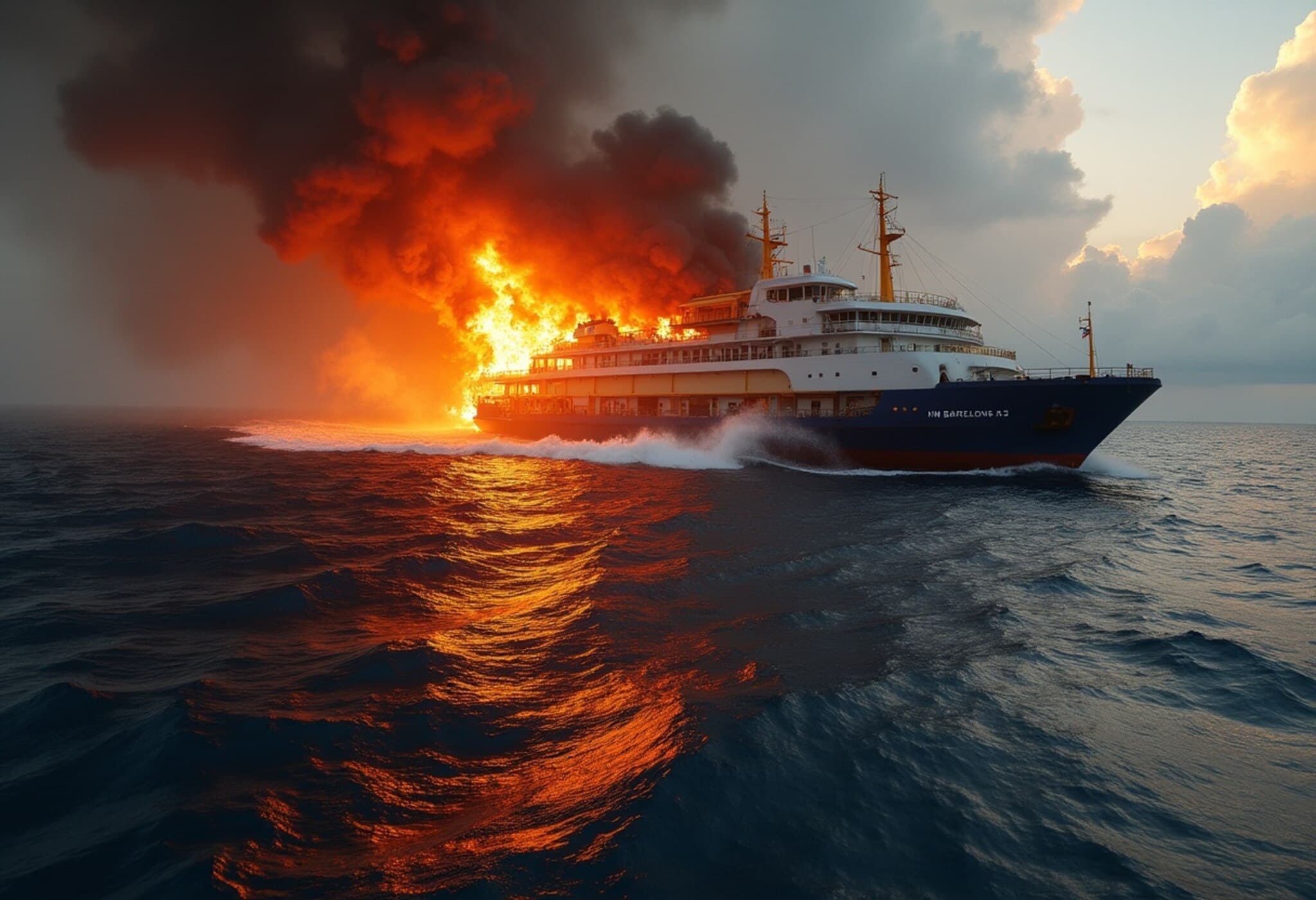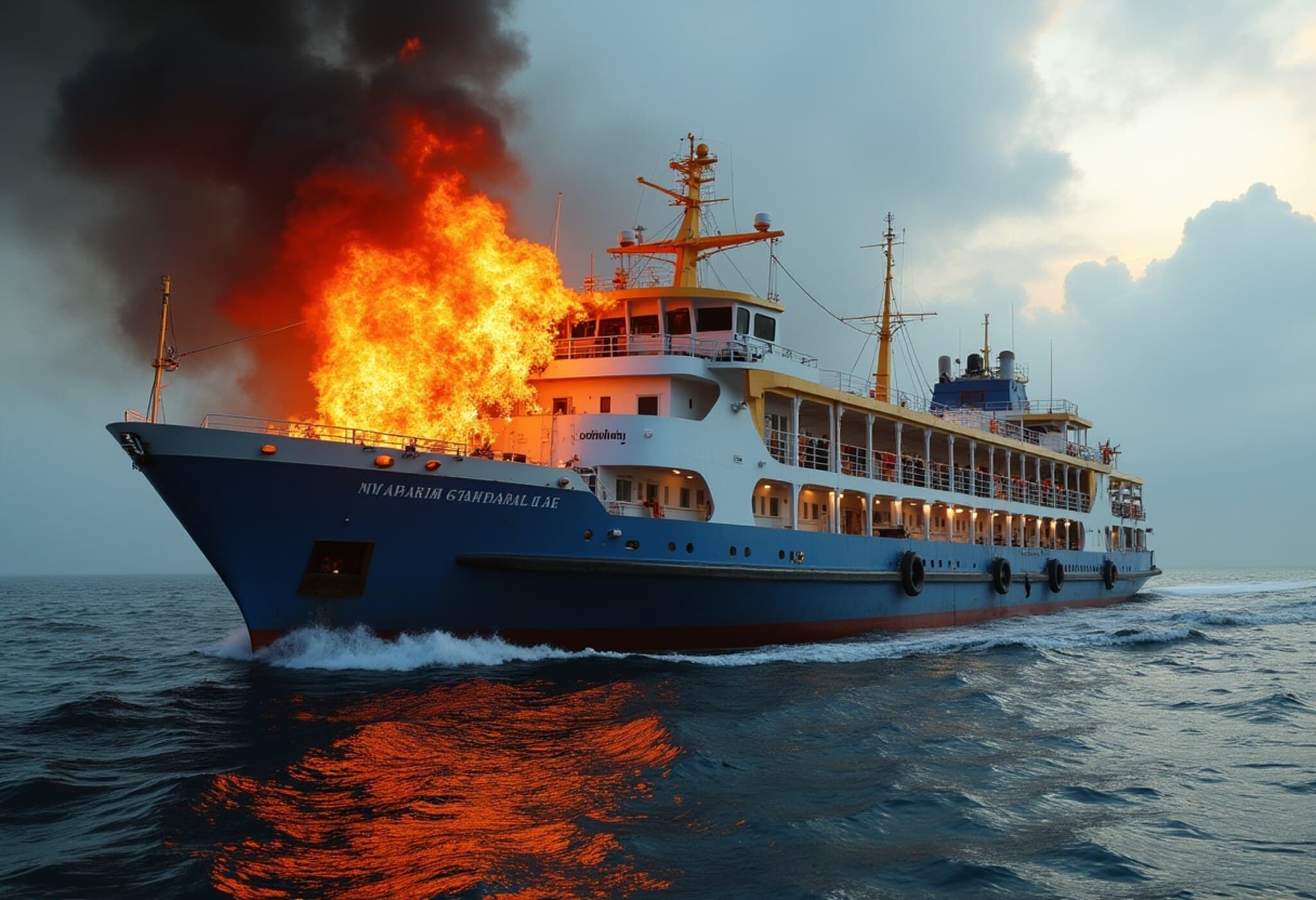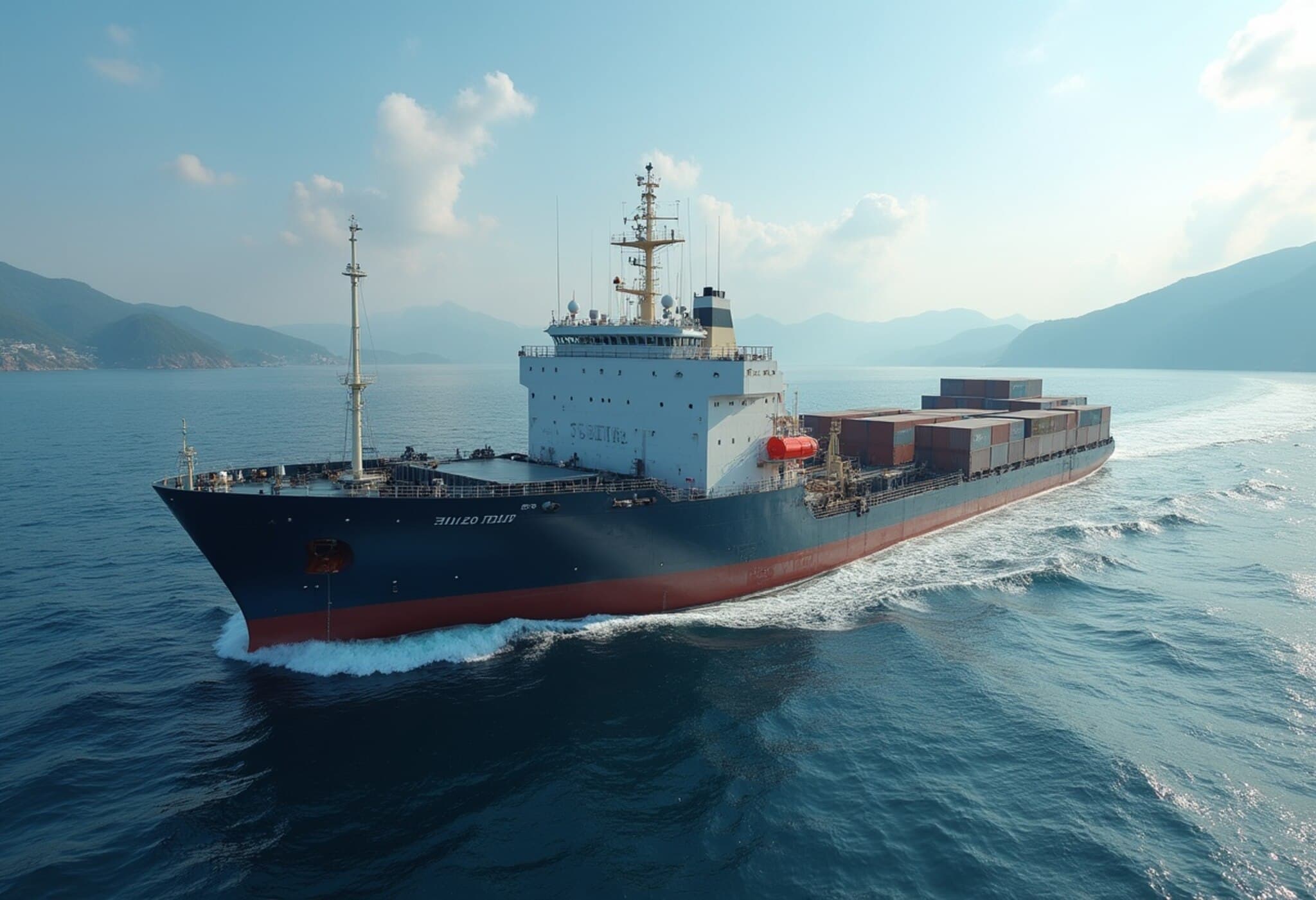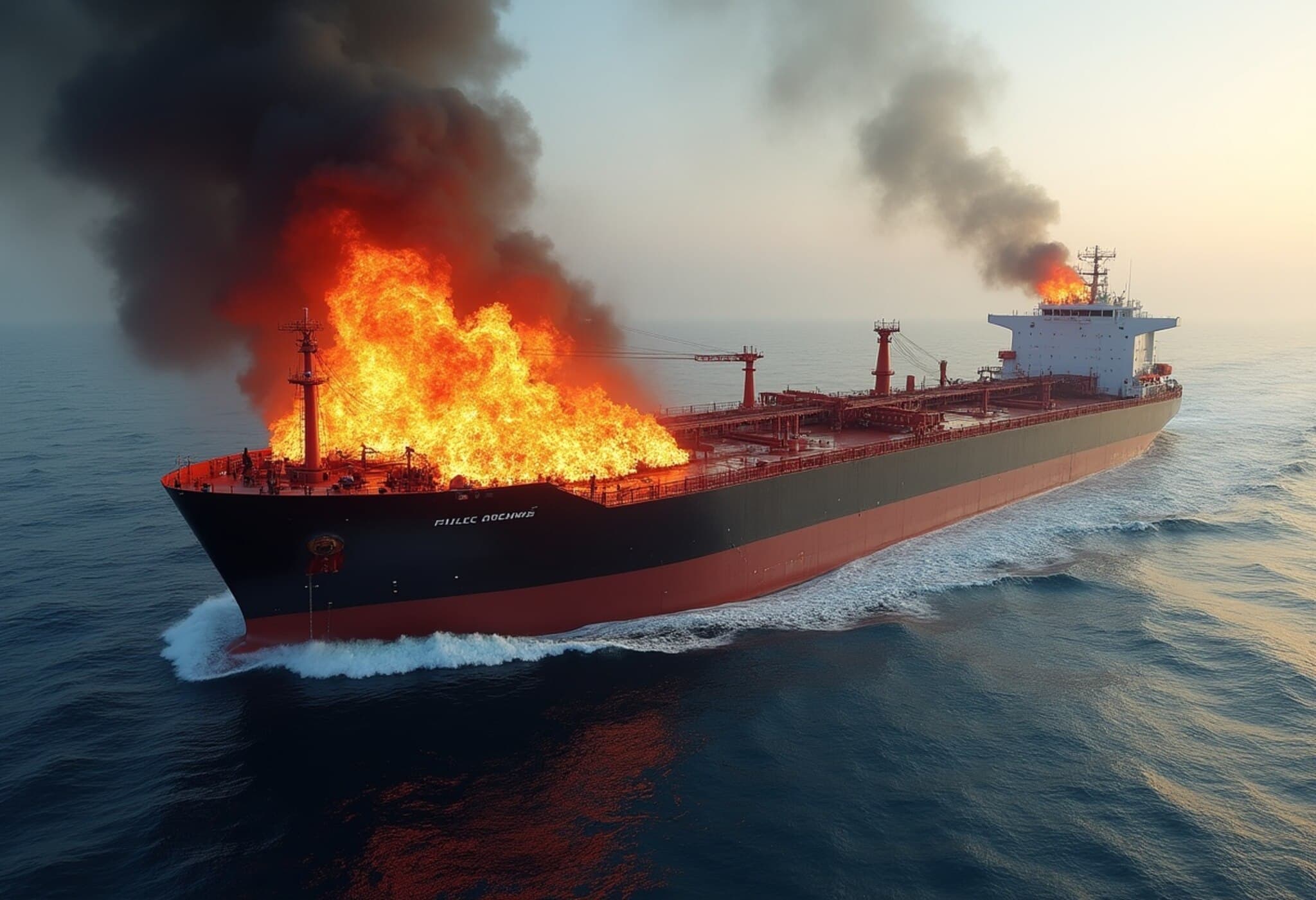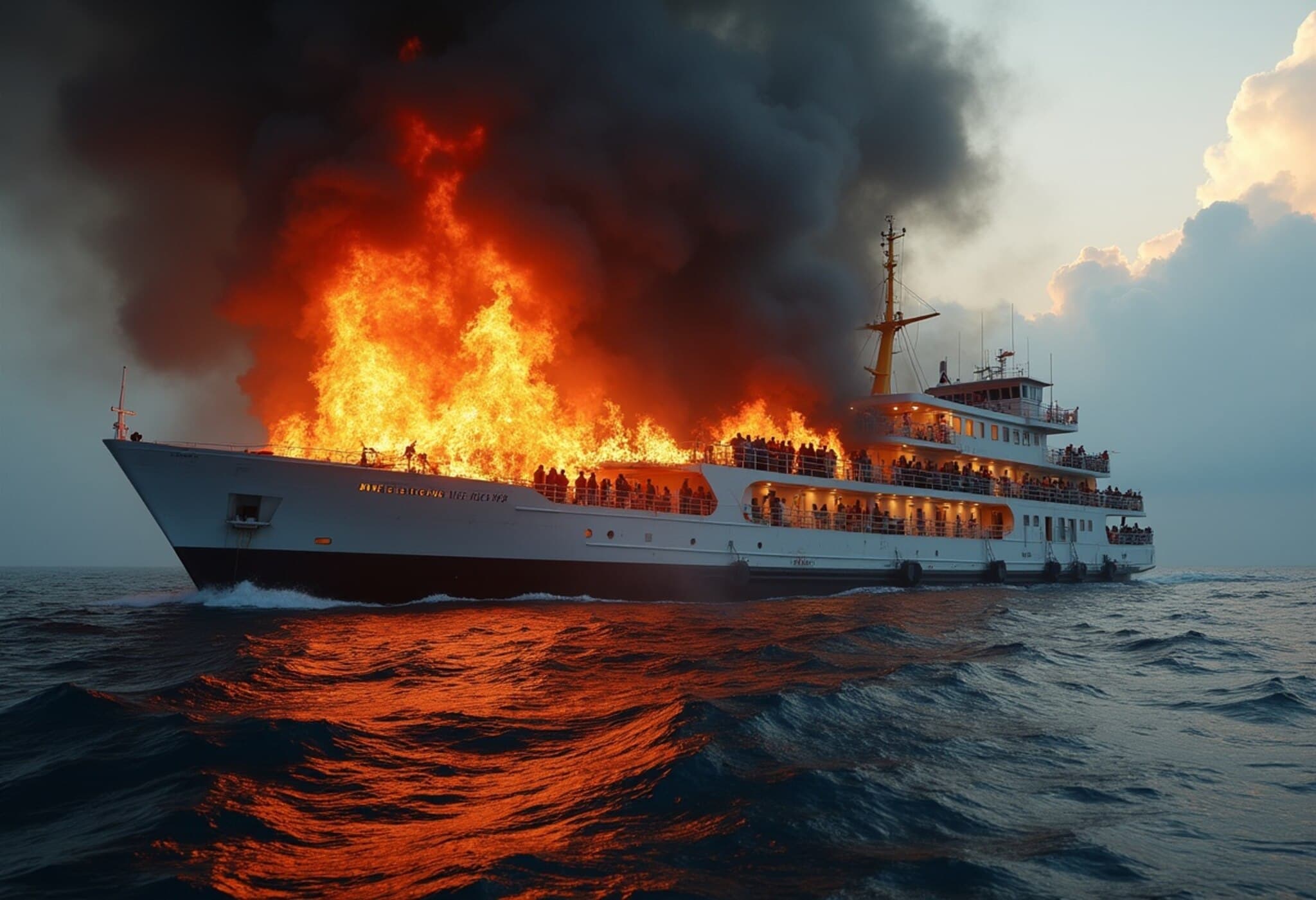Fire Breaks Out on Indonesian Ferry Near Southeast Sulawesi, Over 300 Passengers Evacuated
In a harrowing incident off the coast of Southeast Sulawesi on Sunday afternoon, an Indonesian ferry carrying nearly 300 passengers caught fire mid-journey, forcing a chaotic evacuation and leaving at least 18 people injured. The ferry was en route from Kendari to Makassar when thick black smoke and flames suddenly broke out onboard near Talise Island, igniting panic among those aboard.
Passenger Panic and Emergency Evacuation
Videos circulating on social media capture the intense fear as passengers scrambled to escape the inferno. Many leapt directly into the sea while others hurriedly put on life jackets or scrambled to call loved ones amidst the confusion. The rapid spread of the fire left little time for orderly evacuation, turning the ferry deck into a scene of desperate survival.
Rescue Operations and Casualty Update
According to Jerry Harmonsina, secretary of North Sulawesi's regional disaster management agency, emergency response teams from the Navy, National Search and Rescue Agency, Coast Guard, and even local fishermen swiftly mobilized to assist in rescue efforts. Despite the intensity of the fire, authorities have reported no deaths to date, marking this as a fortunate outcome given the potential risk. However, 18 passengers sustained injuries, mainly from burns and smoke inhalation, and are currently receiving medical attention.
Context: Ferry Travel Risks in Indonesia’s Archipelago
This incident underscores longstanding concerns about ferry safety in Indonesia, an archipelago made up of more than 17,000 islands. For many Indonesians, ferries are a vital lifeline connecting remote islands to urban centers, yet safety standards remain inconsistent, often contributing to tragedy despite repeated calls for reform.
Transport experts point to several underlying challenges, including aging vessels, lax maintenance, and overcrowding, which multiply risks on Indonesian waters. The country’s reliance on sea transport is immense, and incidents like this spotlight the urgent need for stricter regulations and improved emergency preparedness to safeguard passengers.
Unanswered Questions and The Road Ahead
While fire investigators have yet to determine the exact cause of the blaze, the event raises important questions about enforcement of maritime safety standards and emergency response readiness. How effectively are ferry operators adhering to safety protocols? What measures can be implemented to prevent such fires in the future? And critically, how adequately are rescue operations coordinated in archipelagic regions where timely access can be compromised?
The collaborative rescue efforts involving official agencies and local fishermen highlight community resilience but also signal the need for more institutionalized disaster management frameworks.
Editor’s Note
This ferry fire near Southeast Sulawesi serves as a stark reminder of the intricate challenges faced by Indonesia’s maritime transport system. While no lives were lost this time, the incident ignites urgent discussions about passenger safety, regulatory enforcement, and disaster preparedness in a country where sea travel is a daily reality for millions. It also opens a broader dialogue about balancing rapid connectivity with rigorous safety frameworks, not just in Indonesia but across island nations worldwide. Readers are invited to consider how transportation safety intersects with economic development and human wellbeing in vulnerable regions.

